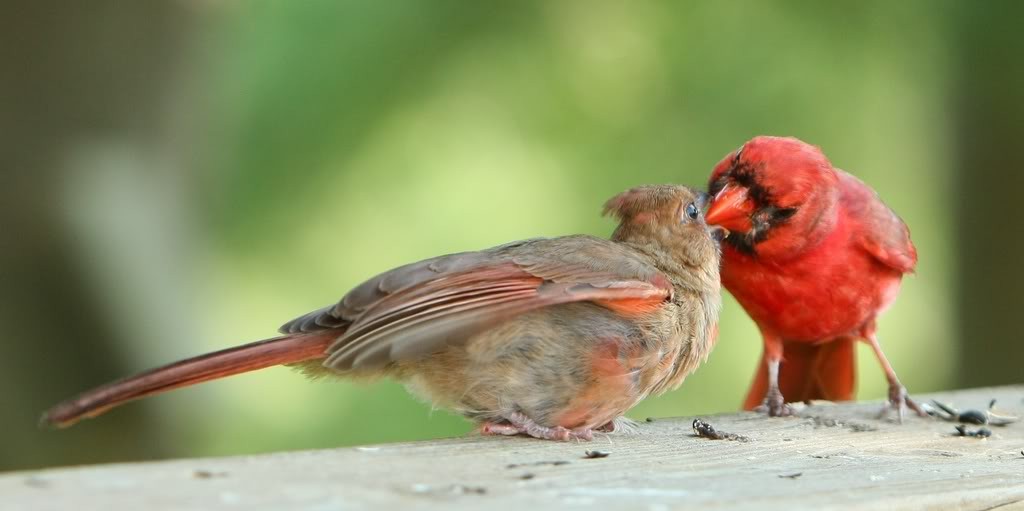
(above) The male cardinals feeds and teaches the first brood of young while his mate sits on the second clutch, which they also raise together.
Almost all mating birds feed insects to their young because the high protein encourages rapid growth.
When winter ends, many winter bird enthusiasts rapidly take down their feeders. They clean and store them until next winter. Their intentions are honorable. These actions encourage wild birds to seek other sources of food and not become overly dependent on humans.
On the other hand, many other back yard birders continue to feed high protein foods to birds throughout the mating season. These include: black oil sunflower seeds, peanuts and suet*. Apples are also valuable due to lack of other fruit naturally available.
While the parents incubate the clutch until they hatch, this nearby and available source of high protein food supplies dependable nourishment. This also remains true for the adults as they feed their hungry young.
After the nestlings have left the nest and become fledglings the adults often have only a few days to teach the young how to survive before they are left on their own. You will often see baby birds following the mother around, wings flapping, begging for food at feeders. This lesson is crucial for survival when winter comes in just six months.
Early in the season we get to comfortably watch birds close up as they perform their mating rituals. The female cardinal sings while the male feeds her, demonstrating he can be a good provider for their offspring which they will raise together. The male cardinal cares for the first brood while the female incubates their second clutch. During the summer the entire cardinal family will visit your garden.
Generally, I let the wild bird seed run out so I don’t waste it, which is mainly millet and corn, low protein fillers for overwintering birds. Wild bird mix doesn’t store well over summer and can attract unwanted visitors or insects to your storage area.
Additionally, water is essential. Many birds will come just for clean water. Wrens prefer running fountains while many others prefer still water that they can bathe in. I supply both. Keep your water clean for healthy birds and insect control. *Suet is made from fat which becomes rancid at high temperatures. If you have extra it can be frozen until next autumn.
Enjoy your garden all year long,
James


